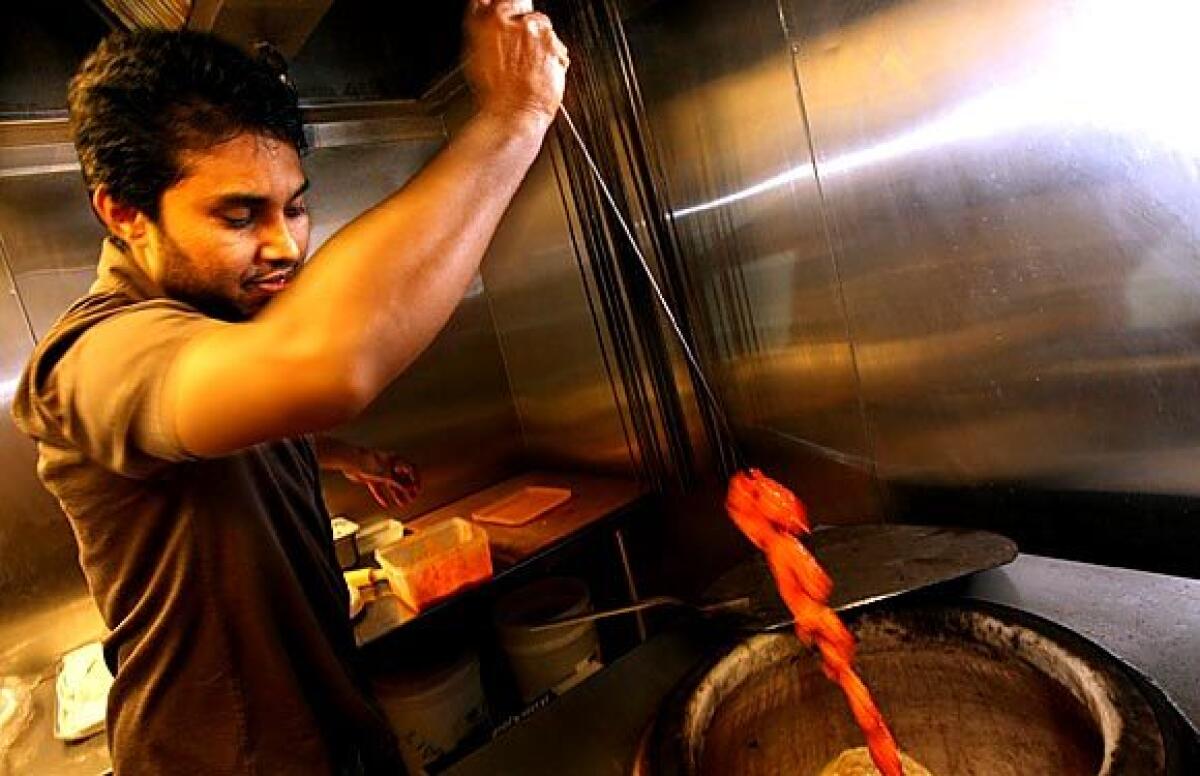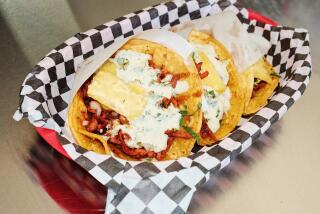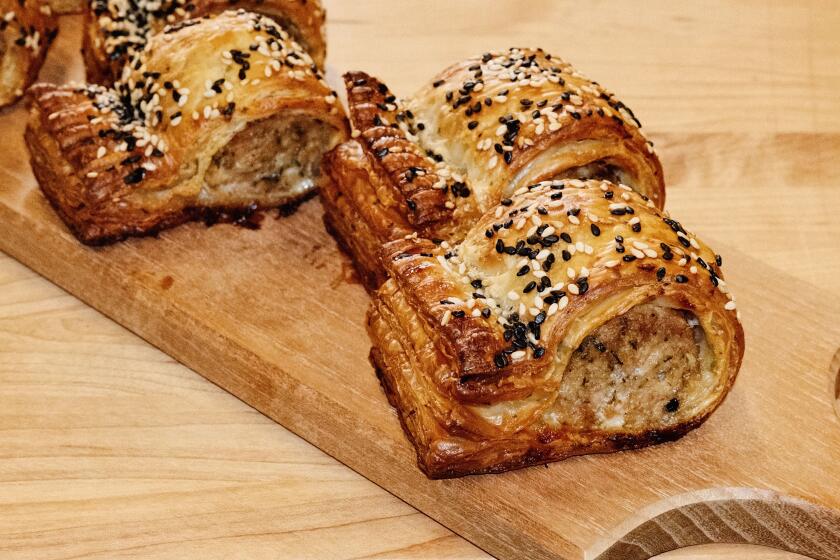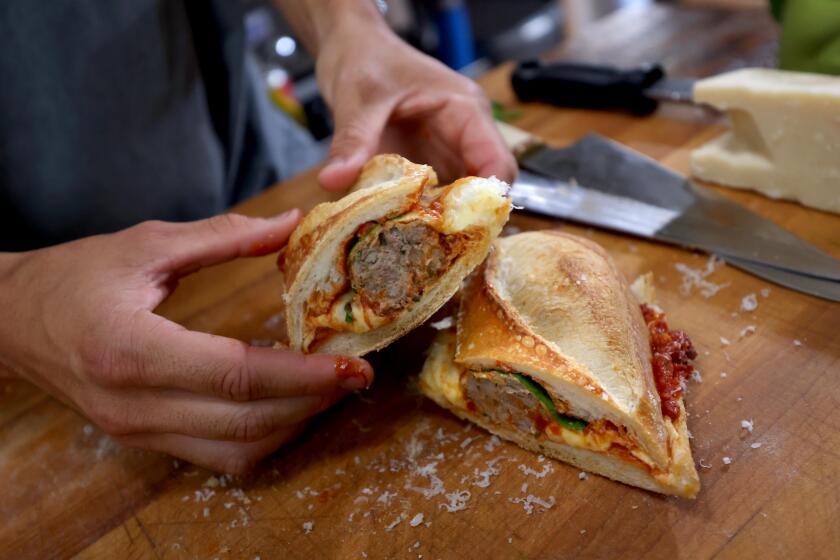The Find: Mutiara Food & Market

The Koranic art at Mutiara Food & Market is rattling against the wall, its filigreed details shaken by the groans of a jet passing overhead. When the plane travels out of sight, Mutiara fills with a consuming quiet. The Inglewood restaurant and market is a subdued place, but its unassuming setting belies its rich and varied Burmese and Malaysian cooking.
Mutiara concentrates mostly on the halal highlights of Islamic Burmese cuisine, a hearty cast of curries and kebabs more closely resembling those of India and Pakistan than Myanmar. They’re the dishes of owner Myo Aung’s personal history. His recipes re-create his Myanmar, paeans to the Islamic traditions of both his family and home. (Outside the kitchen, Aung performs a similar service as an imam, leading prayers and instructing the teachings of the Koran.)
Familiar face
Mutiara isn’t his first restaurant venture. Aung used to own Jasmine Market in Culver City but sold it about two years ago and opened Mutiara. Similarities to the former restaurant remain, but Mutiara has a deeper, more complex menu.
Takeout is all but presumed here, though the restaurant capably cares for those who choose to dine in. Regardless of where you eat, samusas are a staple starter, bulging triangles of either potato- or chicken-stuffed pastry fried so perfectly it’s a wonder they’re not hawked at all county fairs. The crepe-like Malaysian murtabak is perhaps a greater surprise, a tidy package of skillet-grilled flatbread filled with ground chicken and onions.
Entrees initially seem to skew toward the (relatively) familiar. Boti kebabs, excellent yogurt-marinated blocks of beef, lamb or chicken accompanied by rice and nan, recall dozens of Mughlai meals. Similarly, the dal gosht curry, an appropriately viscous stew of lamb and lentils, could’ve been cribbed from a Hyderabadi kitchen. Though both resemble dishes from other cuisines, they’re not imitations. They’re unique, cross-cultural interpretations good enough to stand on their own.
The same goes for Mutiara’s biryani. Chicken is the standard, but the weekend-only lamb biryani is the one to covet, the meat so tender and finely spiced that it tastes as though it took a whole pantry to produce. Rice mitigates whatever heat the biryani is hiding, but the accompanying raita-like side of cucumbers and chiles packs an unmistakable punch.
Mutiara also has a small seafood selection. Whole, fried tilapia dominates, its skin transformed into a crisp casing that seals in every ounce of moisture. There’s also sambal petai, sautéed shrimp in a thick chile sauce with petai beans, known elsewhere as sataw beans, and that possess a certain funk.
Plates of water spinach tossed in sambal or with dried shrimp and garlic can serve as shared sides, but consider instead the daging lembu soup, a Malaysian stew of beef, black pepper, cilantro and green onion that’s simmered for hours.
Weekend winners
The weekend brings Mutiara’s most distinct Burmese dishes. Moh hin gha, which is as central to Burmese cuisine as laksa is to the Malay Peninsula, is ladled into immense bowls befitting of such a popular soup. The powerful fish chowder is loaded with rice noodles, fried split peas, slivers of banana-tree trunk and a hard-boiled egg. Ohn no khauk swe, a coconut-broth noodle soup that contains the same fried split peas and hard-boiled egg, is similarly good, as is khauk swe thoke, a noodle salad doused in fish sauce and chiles.
As he did at Jasmine, Aung also stocks a few racks of South Asian groceries. It’s far from a comprehensive collection, but it’s strong enough to supply you with a bottle of sambal, a tube of durian paste and buttery cardamom cookies so good they won’t survive the ride home.
More to Read
Eat your way across L.A.
Get our weekly Tasting Notes newsletter for reviews, news and more.
You may occasionally receive promotional content from the Los Angeles Times.










